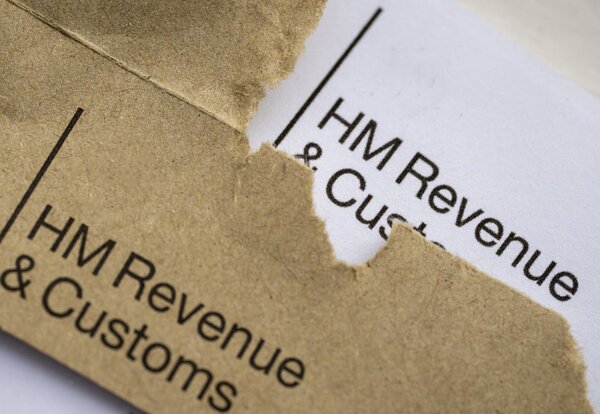Discover effective strategies for managing incomplete expenses and learn how to identify and address missing data. Read the article for practical solutions.
Missing receipts turning your tax return into a headache? You're not alone in this struggle that affects thousands of UK taxpayers annually.
Every year, countless business owners and self-employed individuals face the same documentation dilemma. The fear of HMRC penalties keeps many awake during tax season, wondering if their claims will be accepted.
However, here's the reassuring news: you can handle incomplete expenses properly and stay compliant with tax rules. Furthermore, HMRC understands that real-world business situations often create gaps in record-keeping.
What exactly counts as Incomplete Expenses?
Whilst incomplete expenses present a significant challenge, they require careful deduction and analysis to ensure accurate financial records.
Incomplete expenses occur when you have legitimate business costs but can’t locate all the supporting paperwork. These situations happen more frequently than you might expect in day-to-day business operations.
Perhaps your receipt got washed in your trouser pocket during laundry day. Maybe you paid cash for a business meal and completely forgot to request proof of purchase.
Financial statements are prepared using both available and estimated data to ensure all expenses are accounted for. Understanding the relationship between sales, costs, and profit is essential for making informed business decisions.
A key step in resolving missing information is to systematically review all available records and estimate any gaps to complete your accounts.

Incomplete expense examples you might not realise
Incomplete expenses can crop up in ways you might not expect, often slipping through the cracks of even the most diligent business processes. Let’s look at some real-world examples that highlight how easily missing information can affect your accounting and what you can do about it.
Imagine an employee submits an expense report for a business lunch, but the only evidence is a vague calendar entry and a cash withdrawal from the company account. There’s no receipt, no details about who attended, and no clear connection to a specific business purpose. This is a classic case of incomplete records, where cash payments make it tricky to verify the transaction.
Another common scenario involves credit sales or credit purchases that are logged in your accounting system, but the supporting invoices or delivery notes are missing. Perhaps the transaction was approved verbally, or the document was misplaced during a busy period. Without the right paperwork, it’s difficult to confirm the cost, the items purchased, or even the correct account to allocate the expense.
Closing inventory can also be a source of incomplete expenses. If your year-end stocktake is missing key details like quantities, values, or even the physical location of certain items your calculated profit margin and cost of sales could be way off. This missing information can have a knock-on effect on your balance sheet and tax calculations.
By staying vigilant and following a structured approach, you can ensure that your expense reports are as complete and accurate as possible. This will help you make better business decisions, provide clear insights to your customers and stakeholders, and keep your accounting in top shape no matter what surprises the year might bring.
Can you still claim money back without perfect records?
Yes, you absolutely can claim expenses even with missing or incomplete paperwork. HMRC recognises that real life gets messy sometimes, particularly for busy business owners juggling multiple responsibilities.
They allow reasonable estimates for genuine business costs in specific circumstances. The key word here is “reasonable” – your estimates need to make logical sense and be defensible. For a claim to be accepted, it is required that your estimates are based on the best information available and can be justified if questioned.
You must have some proof that the expense actually occurred, even if it’s not complete documentation. Your bank statement showing a payment can be sufficient evidence in many situations, particularly when combined with other supporting information. Supporting documentation can often be obtained from various sources, such as suppliers or digital receipts. Claims are accepted by HMRC if sufficient information is provided to support the expense.

How do you work out missing amounts without guessing?
Start with whatever records you do have available and work systematically from there. Check your bank statements carefully for the exact payment amount, date, and merchant information where possible.
Look at similar purchases where you kept the receipts properly to establish patterns. Research what those specific goods or services typically cost at that particular time period.
Use the same estimation method for all similar expenses to maintain consistency across your claims. Write down clearly how you calculated each estimate – HMRC might request this information during future enquiries. The answer you arrive at should reflect your best estimate based on the available data and your calculation process.
What paperwork should you keep for dodgy expenses?
You should keep the following information as essential documentation to support your expense claims.
Keep everything you can find, however scrappy or incomplete it might appear initially. Even damaged or partially legible documentation can provide valuable supporting evidence for your claims.
Write a simple, honest explanation of what happened to the missing receipt or documentation. Print your bank statements showing the actual payments made to support your expense claims.
Save any email confirmations, booking references, or digital communications you can locate relating to the purchase. Take clear photos of damaged receipts, even if they’re barely readable or partially destroyed.
Make detailed notes about why each expense was genuinely necessary for your business operations. These contemporary notes can prove invaluable if HMRC later requests clarification about specific claims.

When might HMRC start asking awkward questions?
HMRC might scrutinise your claims more closely during routine compliance checks or formal investigations. They become suspicious if your expense levels seem disproportionately high for your specific type of business or industry sector. Watch for patterns or red flags in your expense claims that could trigger HMRC attention.
Round numbers that look suspiciously convenient can trigger additional questions from tax officials. If you can’t explain clearly why a particular expense was genuinely for business purposes, that raises immediate red flags.
Sometimes they review entire industries systematically, and your business gets caught up in broader sector investigations. Additionally, high expense-to-income ratios can attract unwanted attention from automated review systems.
Last year, I helped a client who claimed £800 monthly for “office supplies” without proper receipts. HMRC questioned this pattern immediately, leading to a stressful six-month investigation that could have been avoided.
How can you avoid this mess in future?
Get a simple smartphone app that photographs receipts immediately after each business purchase. Set up reliable backup systems for all important business transactions and documentation.
Conduct monthly reconciliation checks to identify missing paperwork while you still remember the purchases clearly. Use a dedicated business credit card to create better automatic transaction records.
If you employ staff, teach them proper expense documentation procedures and make compliance everyone’s responsibility. Encourage employees to share examples or insights about common documentation issues they encounter, so the team can learn from real experiences. Review your tracking system regularly and implement improvements as your business grows.
Consider appointing someone specifically responsible for expense management if your business generates significant monthly costs. This investment in proper systems pays dividends when tax season arrives each year.

Don't let Incomplete Expenses stress you out
Missing paperwork doesn't have to ruin your tax position or cost you legitimate deductions. The secret lies in keeping whatever proof you can find and making sensible estimates based on available evidence.
If you're dealing with substantial amounts or particularly complicated situations, consider consulting a qualified tax professional. Most incomplete expense problems can be resolved satisfactorily with HMRC while still protecting your business interests effectively.
Remember that HMRC officers are generally reasonable people who understand business realities. They're more interested in genuine compliance than catching people out on minor documentation issues.
Pie is the UK's first personal tax app, helping working people handle their tax responsibilities with confidence and ease. We're the only self assessment solution offering integrated bookkeeping, live tax calculations, simple return processing, and expert guidance precisely when you need it most.











